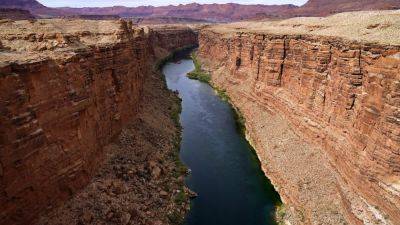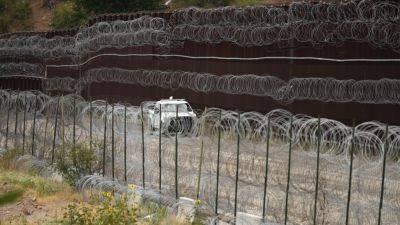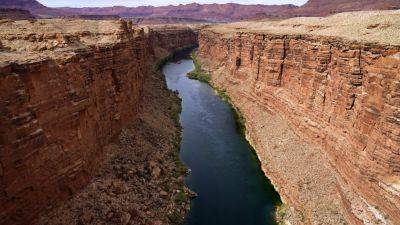Water treaty between Mexico and U.S. faces biggest test in 80 years
Eighty years ago, the United States and Mexico worked out an arrangement to share water from the two major rivers that run through both countries: the Rio Grande and the Colorado. The treaty was created when water wasn't as scarce as it is now.
Water from Mexico flows to Texas' half-billion-dollar citrus industry and dozens of cities near the border. On the Mexican side, some border states like Baja California and Chihuahua are heavily reliant on the water that comes from the American side of the Colorado River.
Now, those water-sharing systems are facing one of the biggest tests in their history. Mexico is some 265 billion gallons of water behind on its deliveries to the United States.
Unpredictable weather patterns due to climate change, growing populations, aging infrastructure and significant water waste have left both countries strapped for water and have escalated tensions along the border.
Maria-Elena Giner is the U.S. commissioner of the International Boundary and Water Commission, the binational agency that oversees the 1944 water treaty and settles disputes.
Mexico is "at their lowest levels ever" in the treaty's history, Giner said. The treaty operates in five-year cycles, and the current deadline for deliveries isn't until October 2025.
But "the question is that they're so far behind, it will be very difficult, if not statistically impossible, for them to make up that difference," Giner said.
Victor Magaña Rueda, an environmental scientist at the National Autonomous University of Mexico, said neither country can survive without the other's water. He called the 1944 treaty a first step.
"Now we have to probably think of how we manage water and each side to adapt to those changes that we are experiencing in







